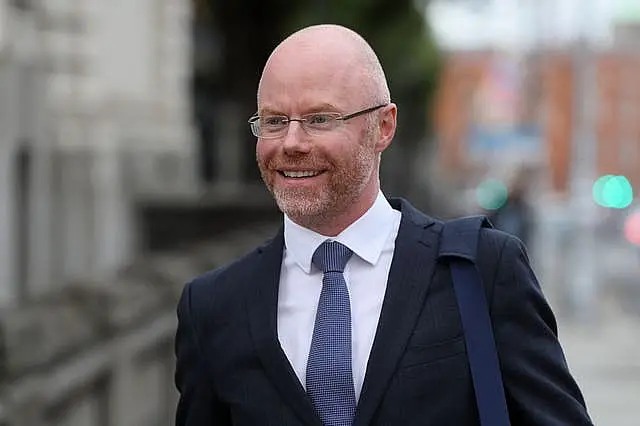Politicians heard clashing views on whether a new piece of legislation might be needed to regulate international surrogacy in Ireland.
Some politicians on the newly formed Oireachtas Committee for International Surrogacy expressed concern and surprise at the implication from civil servants that an entirely new piece of legislation might be required to tackle the ethical and legal challenges posed by surrogacy arrangements in foreign countries.
International surrogacy is not currently regulated for in the Republic, with the Oireachtas committee charged with developing fresh proposals to fix the gap in Irish law.
Special rapporteur on child protection, Professor Conor O’Mahony, expressed surprise at the idea that the legislation on assisted human reproduction, which is currently moving through the Oireachtas, might not be used to regulate international surrogacy.
He told politicians: “I must confess to being rather taken aback by the suggestion earlier on that international surrogacy doesn’t belong in this piece of legislation.
“And the question I would ask is, if it doesn’t belong here then where does it belong?
“My big concern is that knowing how legislative programmes work, that if this doesn’t make it into this bill, that we could be looking at a very, very long wait before any separate bill dealing with international surrogacy makes it back to a process like this.”
In an earlier session of the committee, meeting for the first time in public, officials from three Government departments had indicated that the assisted human reproduction bill might not be a suitable place for fresh proposals on surrogacy.

Muiris O’Connor, an official in the Department of Health, told the committee that the focus of the bill is entirely on regulating practices inside the Republic of Ireland.
“The issues which arise from Irish people engaging in cross-border surrogacy primarily relate to parentage, citizenship and, potentially, adoption,” he said.
He said that the department is “anxious to ensure” that the bill “progresses as quickly as possible and without undue delay”, warning of problems to come if its passage through the Oireachtas is hindered.
Mr O’Connor also rejected any suggestion that Ireland is a “laggard” on the issue.
He admitted that the lack of any regulation on surrogacy does make Ireland an “outlier”, but insisted that no EU member state had law covering citizens using surrogacy in other countries.
The comments prompted concern from a number of politicians, including Senator Mary Seery Kearney.
Ms Kearney asked whether officials were suggesting that the 12-week committee process would unduly delay the passage of the bill.
“We are open to conclusions, timely conclusions from the committee, to explore and they would have to be specific recommendations that would be accepted by Government and then adopted at committee stage,” Mr O’Connor said.
“We were comfortable at the point of announcement around the three months, but I understand today is regarded as day one.
“And that pushes us very close to the summer recess and our firm intention was certainly to have committee stage concluded in advance of summer recess,” he added.
Department of Health official Niall Redmond added: “It was never intended that the bill would address international surrogacy in terms of legislative provisions but obviously, if the sequencing of events and proposals going forward were to line up, the bill certainly could be used as a vehicle for whatever proposals may be brought forward in a legislative capacity.”
Quizzed by Sinn Féin TD Kathleen Funchion, Mr O’Connor said: “It’s not entirely clear to us that a legislative solution will be the outcome of your deliberations.
“Our minister is open to accommodating that conclusion from this committee, but that pushes us quite close to the summer recess, so the committee would have to agree a specific recommendation and such a recommendation would have to be accepted by the Government.”
He said that it was “just the timeframe” that was the issue.
That is frustrating to hear, Ms Funchion said, questioning whether amendments or a new piece if legislation would be required.
“It was 2017 when it was in pre-legislative scrutiny, and now all of a sudden, when we’re starting to meet, there’s this panic about it.”
She called it “unusual” and “frustrating”.
Andrew Munro, an official in the Department of Justice, said that civil servants would need to wait and see what recommendations the committee produces.
Speaking later, Prof O’Mahony expressed some surprise at how the discussion had unfolded.
He had recommended that Irish legislation should allow parents to apply to the High Court for parental responsibility, as well as a grant of citizenship and nationality to the child.
This proposal was greeted by some scepticism from civil servants.
Mr O’Mahony was adamant that the lack of a legal framework had created a “legal twilight zone” for families.
He warned that if passed by the Oireachtas as it stands, the assisted reproduction legislation would be contrary to the rights of children by failing to address surrogacy.
“The approach proposed in the Bill amounts to keeping our head in the sand,” he said.
The bill, he said, discriminates between children based on the circumstances of birth and leaves children born as part of international surrogacy arrangements as “legal strangers”.
He also questioned the lack of retrospective recognition of family relationships as a result of domestic surrogacy.







